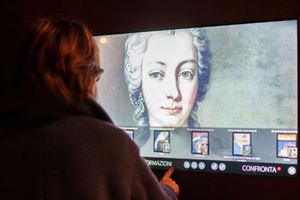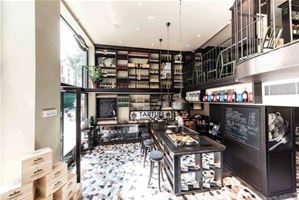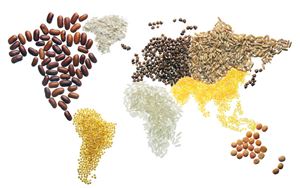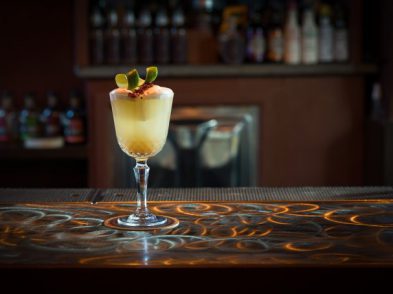One of the most
exciting events of the year, the International Week of Cultural and
Environmental Heritage, organized by the Florens Foundation, returns this year
from November 3 to 11. For this second edition, with the theme From the Grand
Tour to the Global Tour, Florens 2012 will host 300 international speakers and
present an array of events that range from forums, conventions and lectures to
concerts, food events at unique venues like the Uffizi Gallery, and open-air
art exhibits and installations. TF spoke to Davide Rampello, artistic director
of Florens 2012, about the philosophy of the International Week of Cultural and
Environmental Heritage and what to expect of the upcoming event.
Italian economist Giulio Tremonti made headlines a few years ago, when
he said that Italy could not ‘eat with culture,’ referring to the fact that
culture was not a practical goal to pursue because it had no economic value.
What do you think?
This was an
unfortunate expression because the intention of culture is not to ‘make people
eat’ even though we can ‘eat’ with it. Culture cannot be understood in that
sense, especially when one considers the etymology and connotations of the
word. I refer to the Latin verb colere,
meaning cultivare, as in ‘he who
cultivates nature.’ This is where civility is born: through cultivating nature,
Man cultivates himself, testing himself in an effort that is recounted in the
history of civilization. So this is why we have always benefited from culture,
and have always ‘eaten’ with it, to use the same words.
The problem is that
we have a truly ‘uncultured’ idea of culture. Our vision of life is limited and
compartmentalized. We speak of the world of finance and the economy, the world
of commerce, the world of art, the world of sports, etc. However, there is only
one world. So maintaining that we cannot ‘eat’ with or benefit economically from
culture suggests that one has an uncultured and imprecise idea of it.
Moreover, we have a
restricted vision of culture when we consider it as solely the activity of the
arts, such as sculpture, the visual arts, the contemporary arts, and so forth.
Research and science, the economy, and even sports-all of these are also
culture. Culture is any aspect of life in which we apply intelligence,
imagination, intuition, and creativity.
We need to look
beyond artificial divisions about what ‘culture’ is and what it is not. We need
to embrace culture as life. It is true that the arts, such as sculpture and
poetry, are powerful expressions: they represent the strongest vision of
possibility and use various ‘languages’ to describe and reinvent life and the
world around us. But even commerce reinvents. For instance, over the centuries,
different civilizations came into contact through commerce. When we, in the
West, started to trade with the East, we discovered new foods, different kinds
of music, different kinds of ceramics, fabrics, the seeds of plants; we
discovered silk and learned how to weave it. From the East an array of
botanical species were brought to the West, which have now become part of our
heritage and traditions here.
How is tradition conceived today?
Tradition is not
static, nor should it be perceived in a nostalgic way. It is not monumental or
invariable. Indeed, tradition is the history of the cross-fertilization of
cultures. Take cuisine, for example. Even a so-called traditional dish has been
‘contaminated’ by other cultures. If you were to examine each of the
ingredients, you’d be able to identify its many passages and influences from
other cultures and civilizations in the world. Even a recipe that has passed
down through generations cannot be prepared in the same way: the ingredients
will be different, and aspects of the process will be different depending on
who is cooking it. Even cooking with or without passion will alter the final
result. Passion, for example, is a fundamental factor in cuisine because
cooking is alchemy, not solely a technical or creative activity. The way in
which one approaches the burner also determines the quality of the dish.
How can these ideas be applied to Florens?
We can say that what
we’ve discussed so far is the underlying philosophy of Florens, it was the same
idea that Giovanni Gentile [president of the Confindustria Firenze] had many
years ago. This philosophy was then embraced with enthusiasm by all those
involved in the event and the Fondazione Florens. The planning involves local
artisan associations and banks. Now, if one looks at the history of Florence,
one sees how commerce and finance were the driving forces behind the artistic
blossoming of the Florentine Renaissance. The merchants and bankers of the time
had a great sense of generosity and a formidable impulse to exercise the arts.
They also upheld a free, liberal society that was open to innovations. And they
found fertile ground. Artistic talent bloomed like flowers.
Florens was born with
this idea in mind, with this history, as if it were part of the city’s DNA to
express itself with renewed force.
What can we look forward to during Florens 2012?
Events are divided
into three main categories: (1) archeology and the promotion of artistic
heritage, managed by Andrea Carandini; (2) the debate on the evolution of taste
and languages linked to fashion, design and other artistic and creative
productions, managed by professor Walter Santagata; and (3) the representation
of the agricultural landscape, a category that sends a strong message, managed
by professor Mauro Agnoletti, a formidable interpreter, and linked to the theme
of Expo 2015, Nurturing the Planet.
In addition to this
are retrospectives and projects by businesses that work in culture, which will
be the focus of discussions and conferences.
All of this gives the
idea of extraordinary vitality and attention to these aspects of life and
culture. That we are able to present such a programme with a minimal amount of
resources is already a success.
As we did last year,
we are involving city institutions, libraries and schools. It is surely the
most important event of its kind in Italy and continues to garner international
attention.







